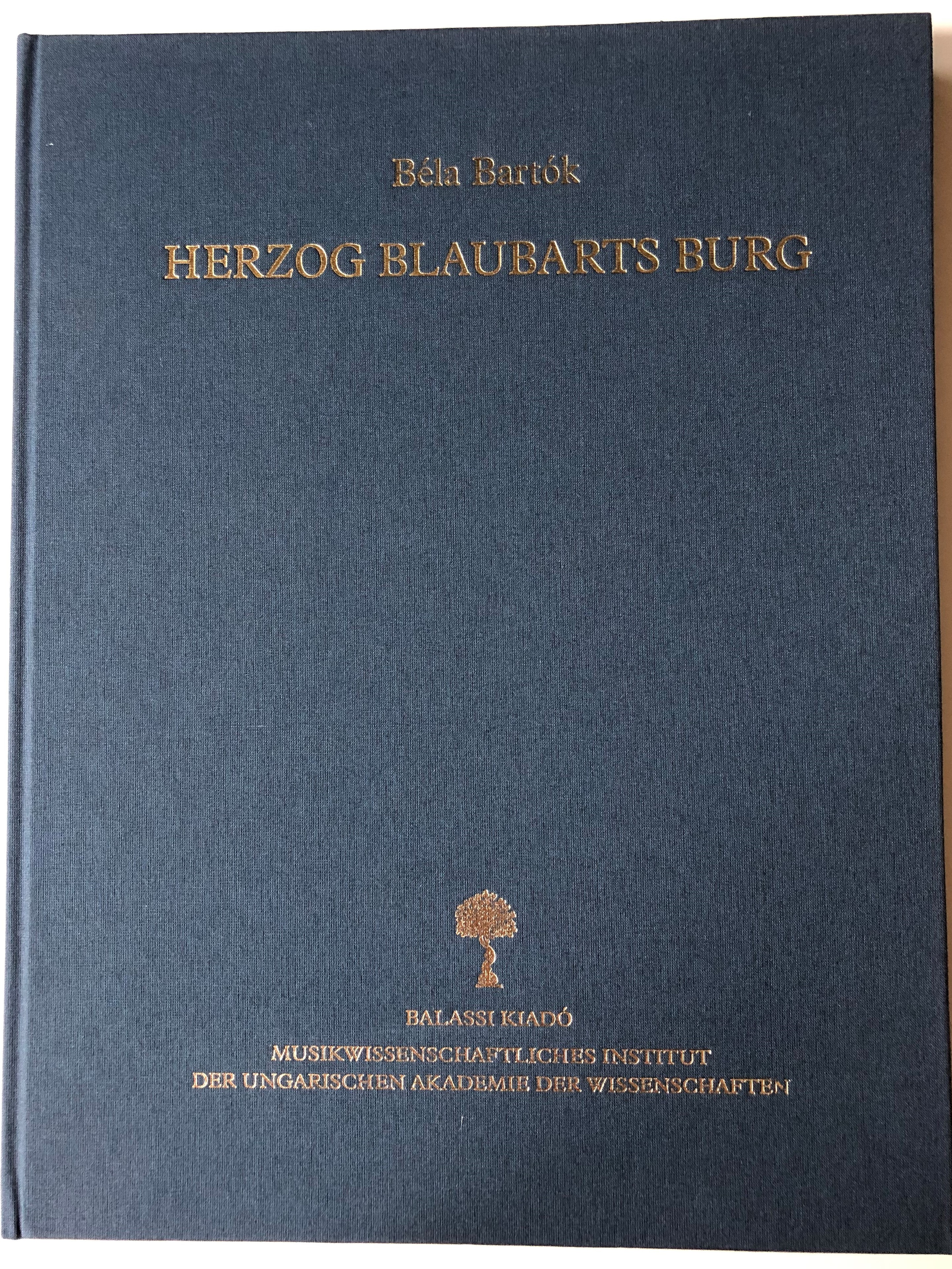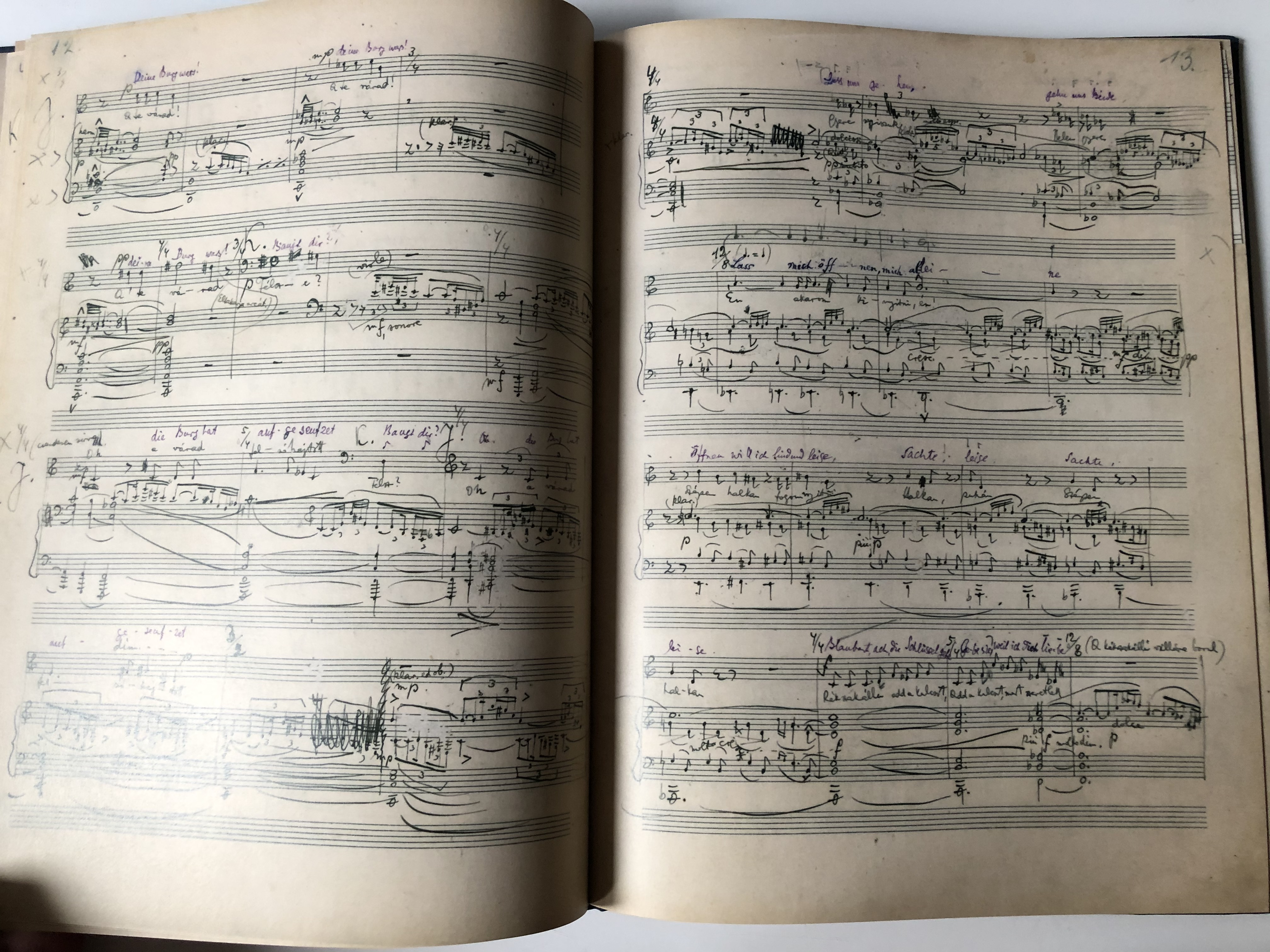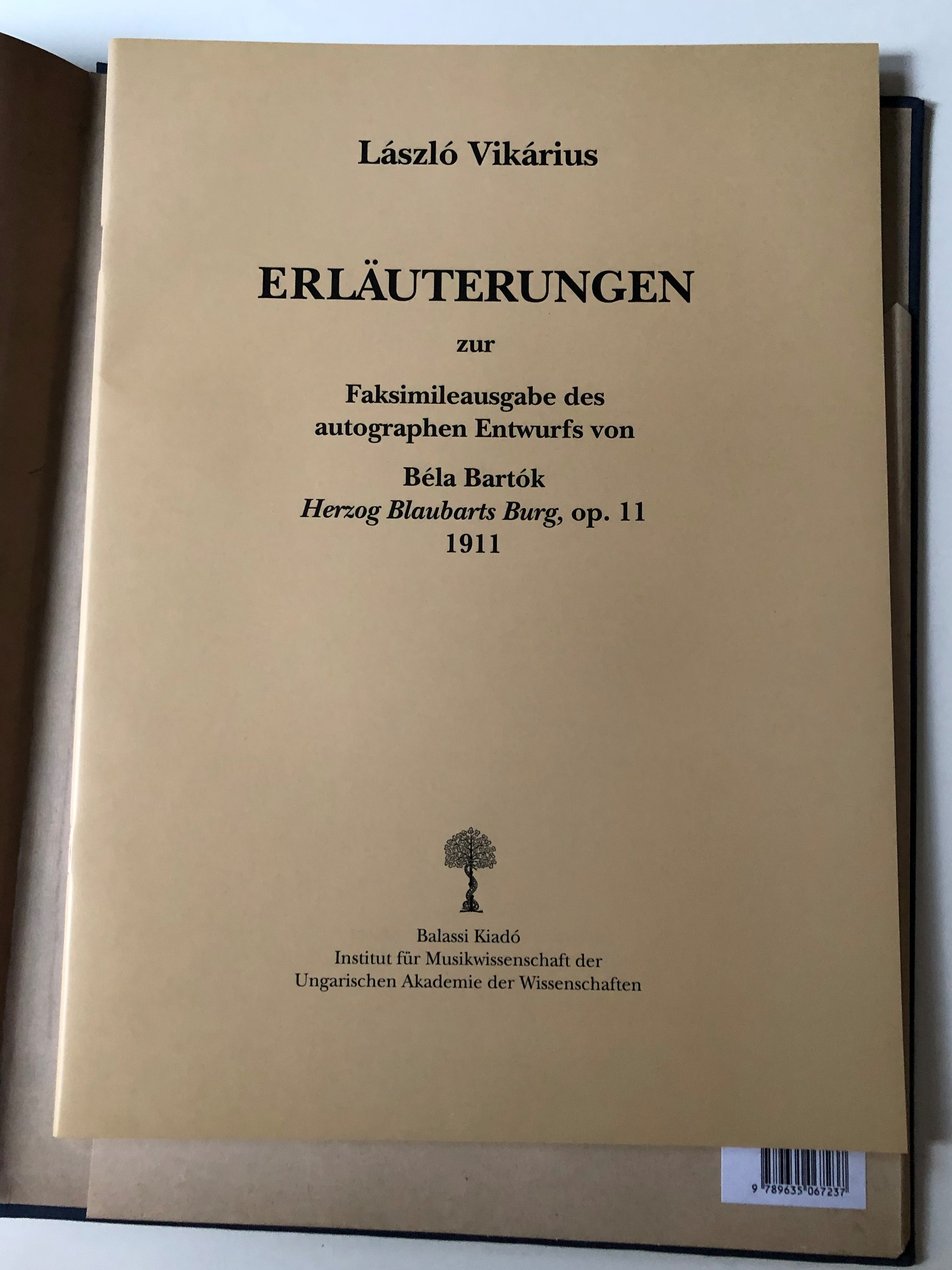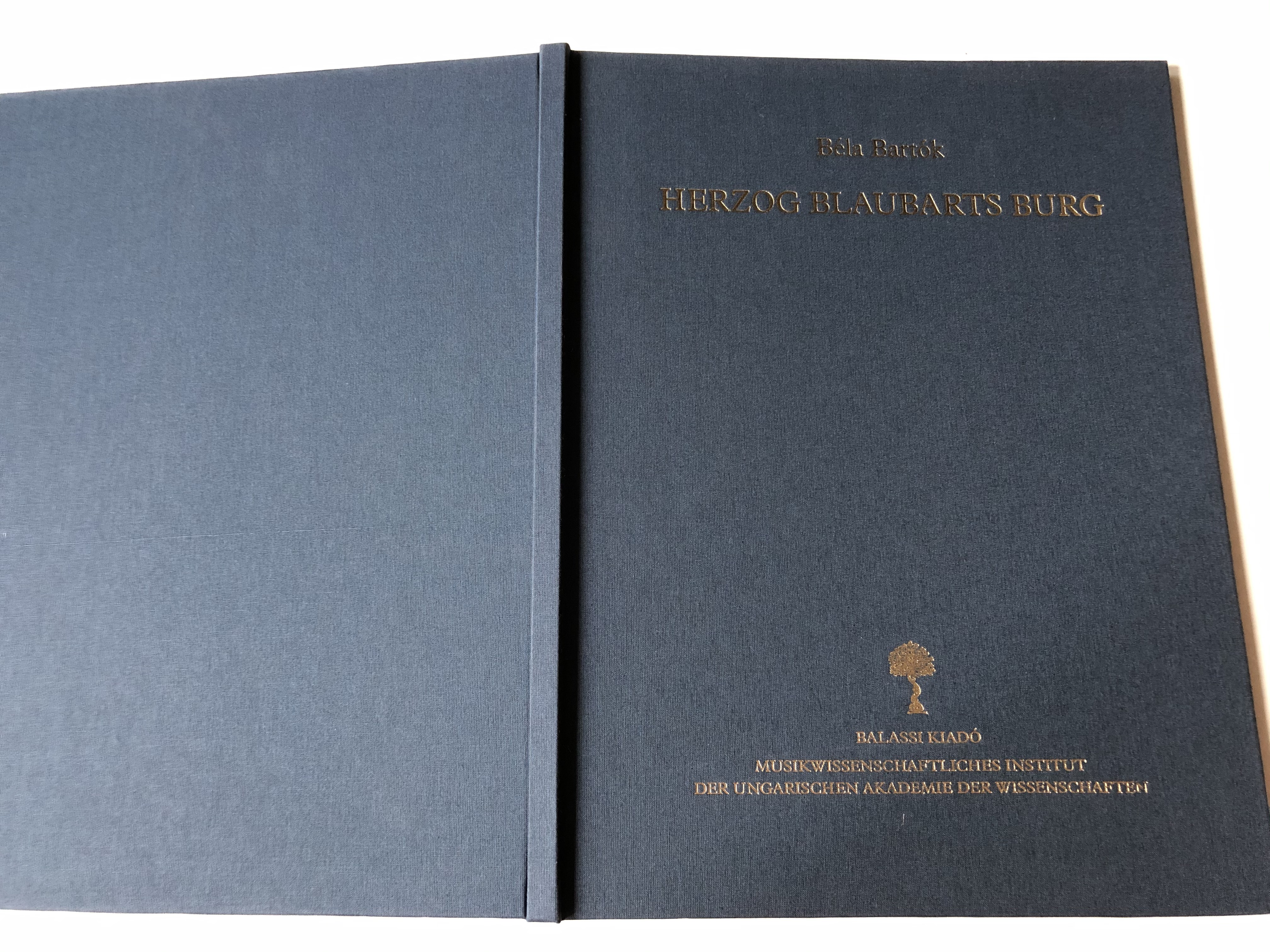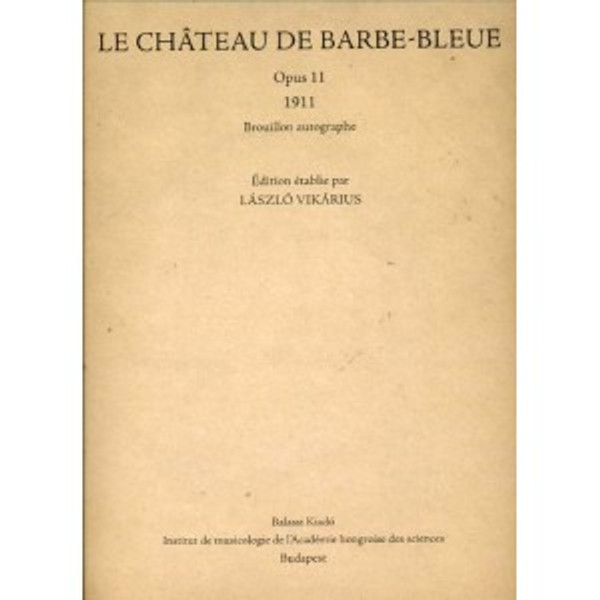Description
Herzog Blaubarts Burg (1911) – Béla Bartók
Facsimile Edition | Opus 11 | Edited by László Vikárius | Balassi Kiadó, 2006
Product Information / Termékinformációk
- Title / Cím: Herzog Blaubarts Burg (1911) (Bluebeard’s Castle)
- Composer / Zeneszerző: Béla Bartók
- Editor / Szerkesztő: László Vikárius
- Publisher / Kiadó: Balassi Kiadó
- Publication Year / Kiadás éve: 2006 (Facsimile Edition)
- Edition / Kiadás: Hardcover
- ISBN: 9789635066896 / 978-9635066896
- ISBN-10: 9635066899
- Language / Nyelv: German (Deutsch)
- Opus Number / Opusz: 11
Overview / Áttekintés
In English:
Herzog Blaubarts Burg (Bluebeard’s Castle), Op. 11, is Béla Bartók’s only opera, composed in 1911 with a libretto by Béla Balázs. This German-language facsimile edition, published by Balassi Kiadó, presents the opera in its historical context, meticulously edited by László Vikárius.
The opera is a one-act psychological drama, deeply symbolic and expressionist in nature. It tells the haunting story of Duke Bluebeard and his new wife, Judith, who enters his castle and insists on opening seven mysterious doors—each revealing deeper, darker aspects of Bluebeard’s past and soul.
This hardcover facsimile edition is a valuable resource for music scholars, opera enthusiasts, and Bartók researchers, providing an authentic reproduction of Bartók’s score.
Magyarul:
A Herzog Blaubarts Burg (Kékszakállú herceg vára), Op. 11, Bartók Béla egyetlen operája, amelyet 1911-ben komponált Balázs Béla librettójára. Ez a német nyelvű fakszimile kiadás, amelyet a Balassi Kiadó adott ki, Vikárius László szerkesztésében jelent meg.
Az opera egy egyfelvonásos, pszichológiai dráma, amely erősen szimbolista és expresszionista elemeket hordoz. A történet Kékszakállú herceg és felesége, Judit kapcsolatát mutatja be, ahogy Judit sorra kinyitja a kastély hét titokzatos ajtaját – mindegyik egyre mélyebb és sötétebb titkot tár fel férje múltjából és lelkéből.
Ez a keménytáblás fakszimile kiadás különösen értékes zenetudósok, opera-kedvelők és Bartók-kutatók számára, mivel hűen tükrözi Bartók eredeti kottáját.
Features & Benefits / Jellemzők és előnyök
✔ Authentic facsimile edition of Bartók’s only opera
✔ Bartók egyetlen operájának hiteles fakszimile kiadása
✔ German-language edition for international accessibility
✔ Német nyelvű kiadás nemzetközi elérhetőséghez
✔ Edited by Bartók expert László Vikárius
✔ Vikárius László, Bartók-szakértő szerkesztésében
✔ Hardcover format for durability and archival use
✔ Keménytáblás kiadás tartósság és archív használat céljából
✔ Ideal for musicologists, students, and opera enthusiasts
✔ Zenetudósoknak, hallgatóknak és operabarátoknak kiváló választás
Interesting Facts / Érdekességek
Bartók originally composed Bluebeard’s Castle for a competition, but it was rejected for being too modern.
Bartók eredetileg egy versenyre írta a Kékszakállú herceg várát, de elutasították, mert túl modernnek tartották.
The opera was first performed in 1918 in Budapest, conducted by Egisto Tango.
Az opera 1918-ban mutatták be Budapesten, Egisto Tango vezényletével.
The libretto, written by Béla Balázs, is inspired by Charles Perrault’s fairy tale but takes a deeply psychological approach.
Balázs Béla librettója Charles Perrault meséje alapján készült, de mély pszichológiai megközelítést alkalmaz.
This facsimile edition allows readers to study Bartók’s original notation and compositional techniques.
Ez a fakszimile kiadás lehetőséget ad Bartók eredeti jelöléseinek és kompozíciós technikáinak tanulmányozására.
Publisher / Kiadó
Published by Balassi Kiadó, 2006. All rights reserved.
Kiadja a Balassi Kiadó, 2006. Minden jog fenntartva.
What do you think of Bartók’s only opera? Let us know!
Ön mit gondol Bartók egyetlen operájáról? Írja meg nekünk!
Hashtags / Hashtagek
#BélaBartók #BluebeardsCastle #HerzogBlaubartsBurg #Opera #FacsimileEdition #ClassicalMusic #BalassiKiadó #HungarianComposer #BartókResearch



































